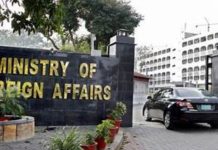Guwahati: Reacting to a viral social media post insisting on India’s
diplomatic liberty out of the Commonwealth of Nations, Patriotic
People’s Front Assam (PPFA) bats for appointing ambassadors (instead
of high commissioners) in most of the 53 Commonwealth countries, so
that the Union Government in New Delhi can pursue diplomatic
relationships with these nations without any prejudice.
One can observe from the list of ambassadors/high commissioners (of
India) in various Commonwealth countries across the world that there
is no Indian ambassador (but high commissioners). The question that
arises is, why New Delhi is not interested to appoint ambassadors in
neighbouring Bangladesh, Maldives, Pakistan and Sri Lanka along with
Asian nations like Brunei, Malaysia and Singapore.
Because of reasons unknown to the people of India, New Delhi is yet to
appoint any ambassador in Cameroon, Ghana, Kenya, Mauritius,
Mozambique, Namibia, Nigeria, Rwanda, Seychelles, Sierra Leone, South
Africa, Uganda, Zambia, etc. Similarly, India has only high
commissioners in Australia, Fiji, New Zealand, Papua New Guinea,
Solomon Islands, Canada, Dominica, Jamaica, Cyprus, Malta, United
Kingdom, etc.
By the recognised definition, an ambassador serves as primary means of
confidential communication with other governments. In fact, the
ambassador is the highest-ranking diplomatic representative of a
particular country in another nation-state. The host country typically
allows the ambassador control of a specific territory called an
embassy, whose territory, staff, and vehicles are generally afforded
diplomatic immunity in that country.
Responsibilities of an ambassador, who is the head of an embassy,
include primarily to protect the citizens of his/her home country in
the host country. When two nations make a deal, it is usually
advantageous to both the countries to have ambassadors along with a
group of staff.
On the other hand, a high commissioner is the head of high commission
and he/she is regarded as a senior diplomat in charge of the
diplomatic mission in Commonwealth nations. The high commissioner
normally keeps the interest of locals as well as their own citizens
ahead.
“The understood policy is that any nation which was a part of British
colonies normally appoints a high commissioner only (not an
ambassador) in Commonwealth countries. Actually, in the British
empire, high commissioners were envoys of the imperial government
appointed to manage various territories which were not fully under
sovereignty of the British Crown,” said the forum of nationalists.
It strongly opposes such a policy linked to the colonial legacy and
urges the Centre to appoint the diplomatic representatives according
to the interest of Indians only. PPFA argues that there is no reason
to follow the British legacy anymore. As a sovereign nation, India
must establish its diplomatic independence (no matter what other
Commonwealth countries would prefer to do), asserted the forum.
Finally, the PPFA opines that there is an urgent need to revisit the
existence of the Commonwealth in its present form. The organisational
structure of the Commonwealth has far outlived its usefulness,
asserted the forum, adding that it should be transformed with an aim
to cater the needs, aspirations and values of various democratic
nations in the globe.

















